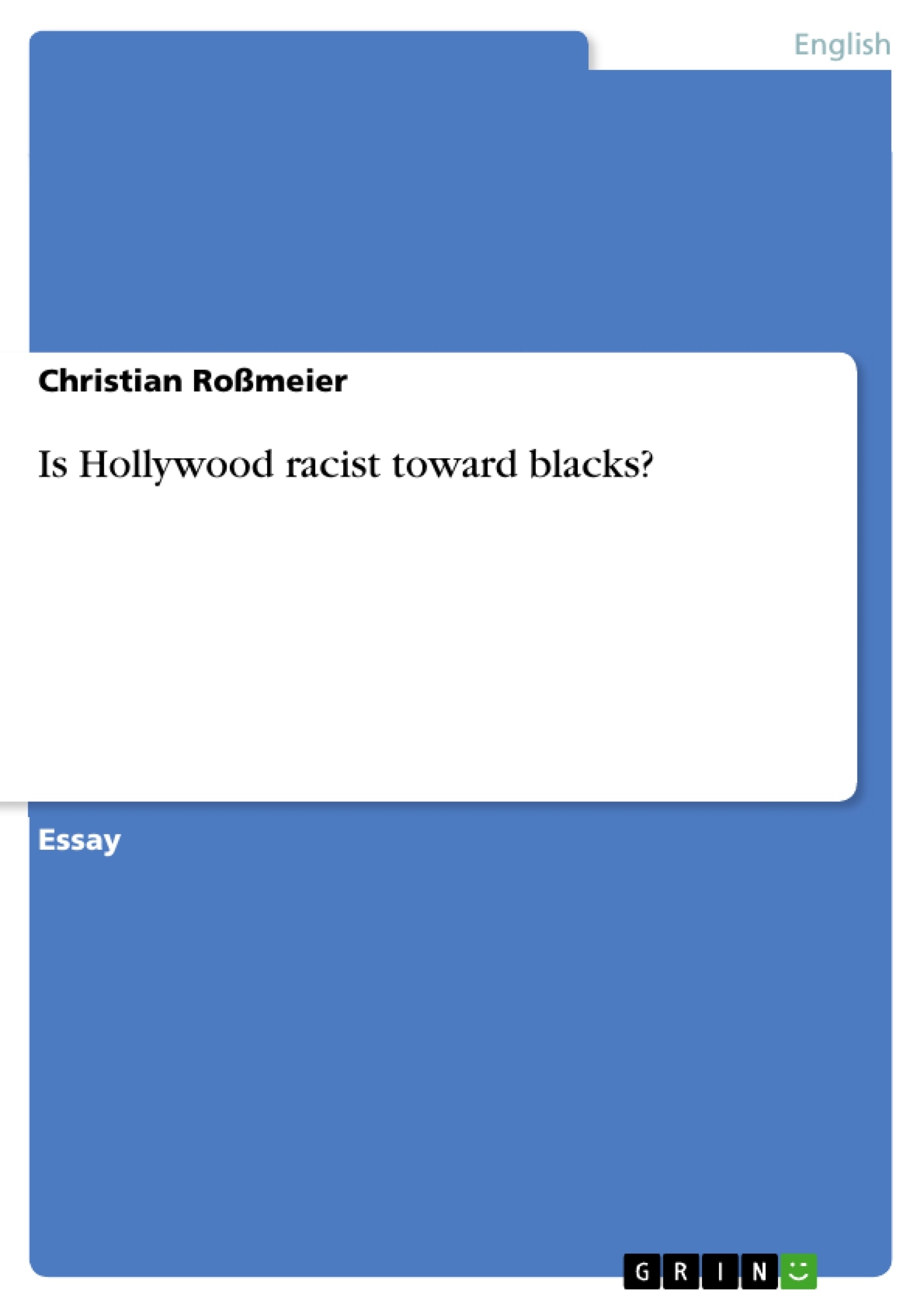In 2002, the awarding of the Oscars, which is the most important distinction in the movie business, took place, and that year black actor Denzel Washington was nominated for Best Actor in a Leading Role, just as his colleague Halle Berry (“Oscars”). Whereas Washington’s win was the first for a black actor since 1964, when Sidney Poitier had won this award, it seemed to become a turning point for African Americans (“Best Actor”). Halle Berry won the award for Best Actress in a Leading Role, and, consequently, she became the first black woman to win this honor (“Best Actress”). For Washington it should not have been easy because one of his opponents was Russel Crowe, who had already won this award the previous year (“Oscars”). After the announcement, everybody in the Kodak Theatre stood up to applaud for Washington who has won his category. Therefore, the fact that blacks have been treated differently in the movie business came to people’s minds; it can even be maintained that Hollywood is racist toward blacks.
Inhaltsverzeichnis (Table of Contents)
- Is Hollywood Racist Toward Blacks?
- Were African-American Actors Discriminated Against?
- Were African-American Actors Actually Discriminated Against?
Zielsetzung und Themenschwerpunkte (Objectives and Key Themes)
This essay analyzes the presence of racism in Hollywood toward Black actors, examining how this prejudice has manifested throughout history and exploring the evolution of representation and recognition within the industry.
- Representation of Black Characters in Film
- Stereotyping of Black Actors
- Awards and Recognition of Black Actors
- Historical Evolution of Race Relations in Hollywood
- The Potential for Change and a More Inclusive Future
Zusammenfassung der Kapitel (Chapter Summaries)
The essay begins by examining the historical context of Black actors in Hollywood, noting that while prominent figures like Sidney Poitier and Denzel Washington have achieved success, there is a history of prejudice and discrimination. The essay analyzes how early depictions of Black characters were often stereotypical and limited in their range, highlighting the use of white actors to portray Black characters. It then delves into the issue of awards and recognition, analyzing how Black actors have been underrepresented in nominations and wins, particularly in the prestigious categories of Best Actor and Best Actress.
Schlüsselwörter (Keywords)
This essay examines the historical and contemporary issues of racism, discrimination, and stereotyping in Hollywood's treatment of Black actors. It focuses on themes of representation, recognition, award ceremonies, and the evolution of racial dynamics within the film industry. The essay also incorporates key concepts like the Academy Awards, the history of Black characters in film, and the impact of the film industry on social perceptions.
Frequently Asked Questions
Is there evidence of racism in Hollywood history?
Yes, the essay discusses a history of prejudice, including the use of white actors to portray Black characters and the prevalence of limited, stereotypical roles for Black actors.
Who was the first Black woman to win an Oscar for Best Actress?
Halle Berry became the first Black woman to win the Academy Award for Best Actress in a Leading Role in 2002.
When did Denzel Washington win his first Best Actor Oscar?
Denzel Washington won the award for Best Actor in a Leading Role in 2002, which was the first win for a Black actor in that category since Sidney Poitier in 1964.
What are common stereotypes faced by Black actors?
Historically, Black characters were often depicted in narrow, subservient, or caricature-like roles, which limited the professional range and recognition of Black talent.
How has representation changed in Hollywood?
The essay explores the historical evolution of race relations, noting that while milestones have been achieved, the industry continues to struggle with issues of full inclusion and equal recognition.
- Citation du texte
- Christian Roßmeier (Auteur), 2011, Is Hollywood racist toward blacks?, Munich, GRIN Verlag, https://www.grin.com/document/191267



